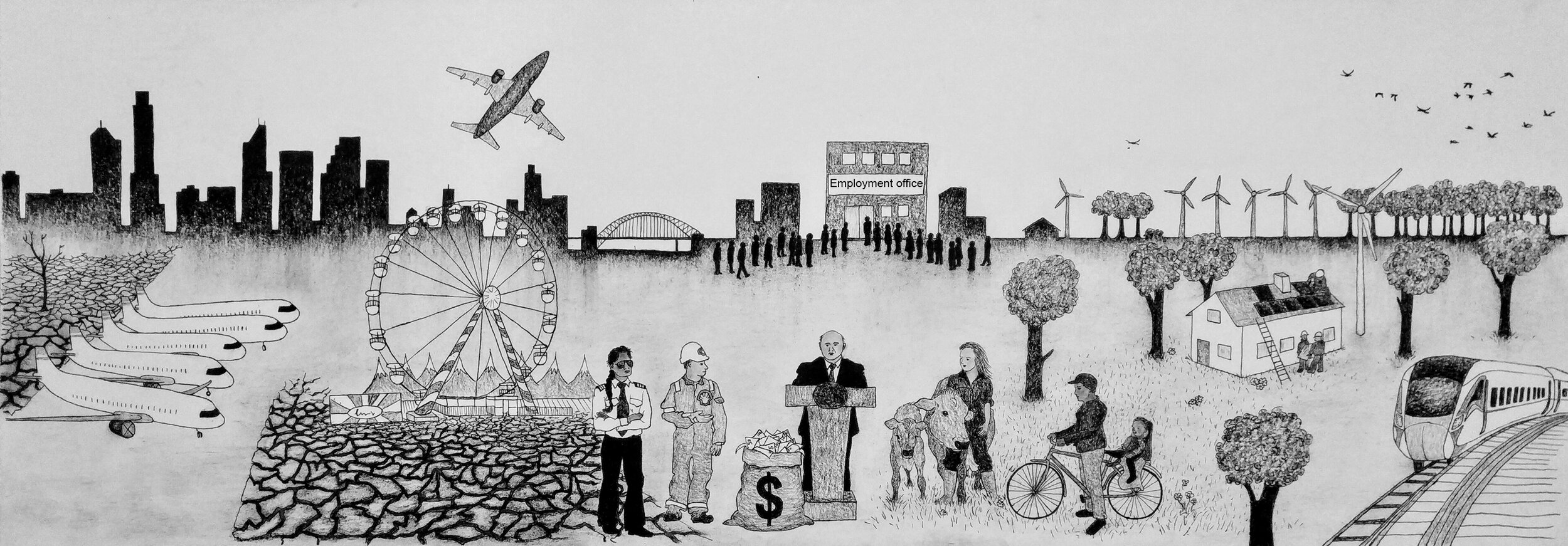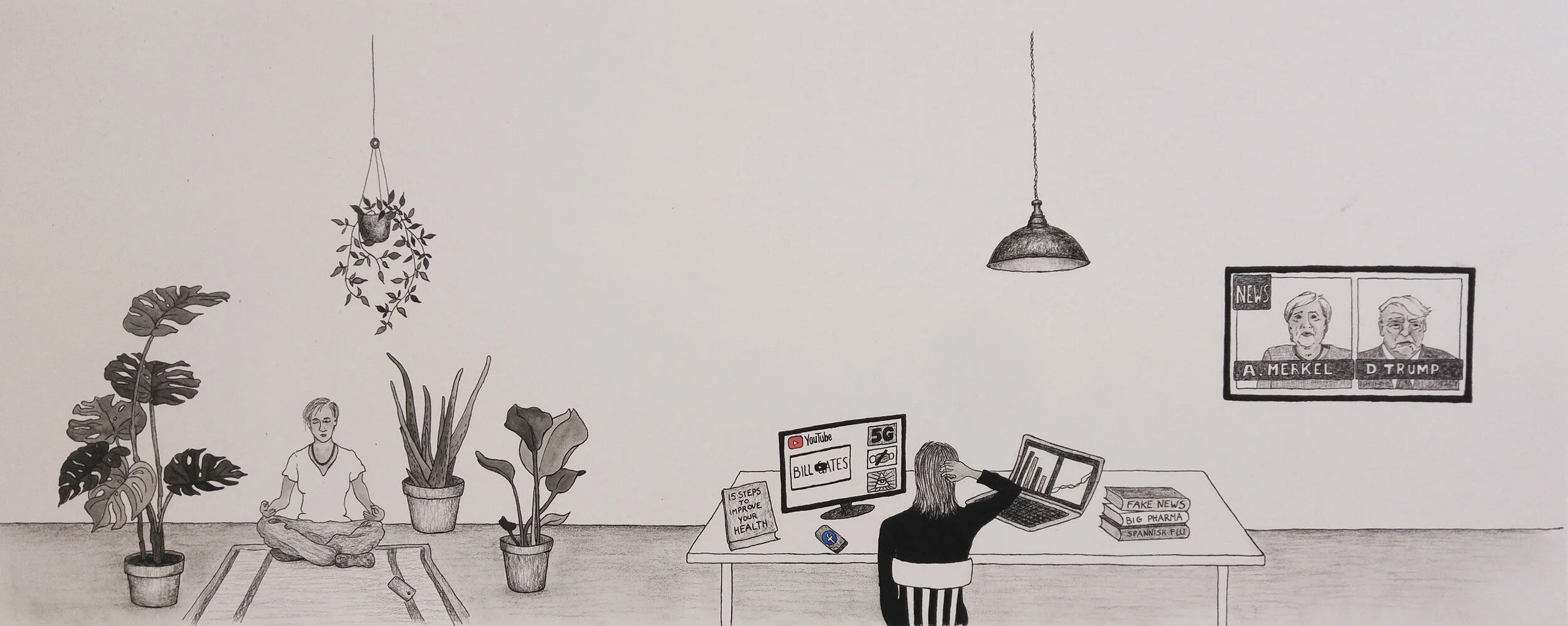This project groups three studies on the way we deal with the future in corona times. I co-lead it with my colleague Anneke Sools from the UT Psychology, Health and Technology Section.
I discuss these studies in an episode of the 4TU Ethics Corona/Ethics podcast: https://anchor.fm/4tuethicspodcast.
Study 1: “Will the Future Never be the Same? Letters from a Post-Corona Future”
The current corona virus outbreak has affected our health systems, daily routines, social relationships, livelihoods, the global economic system in ways we never imagined possible. This shows that far-reaching changes, whether negative or positive, are possible. How do we imagine in these circumstances a desirable future after the corona outbreak, rather than the most likely or dreadful future? Our study investigates how a global, disruptive event can impact our perception of what is possible and what is desirable, and the way we make sense of the world (community, society, humanity, the planet) and ourselves.
We do this by inviting participants to write a letter from a future after the corona crisis addressed from a future time and place of their choice to the present. The questionnaire and a short survey were available in 9 languages (Dutch, Enlish, Estonian, Finnish, French, German, Greek, Italian, Spanish) to enable as many people as possible to contribute their stories of imagined futures.
Letters were collected from April to September 2020 and are currently analyzed by members of our international consortium from King’s College London, Leibniz University Hannover, The Center for Religious Studies, Bruno Kessler Foundation (Italy), University Vita-Salute San Raffaele (Italy), the University of Crete, the University of Humanistic Studies, the University of Tartu, and the University of West England Bristol.
The animation below introduces the study.
Study 2: How Future Perspectives Evolve During the COVID-19 Crisis: A Longitudinal Study
In this survey, we analyze potential changes in participants’ views on expected, hoped-for and feared post-corona futures between August 2020 and November 2020.
Study 3: Anticipatory Moral Imagination in Corona Times: A Study Based on Drawings
In the wake of the corona crisis, each of us was confronted to new personal or collective moral dilemmas to which we had not yet been confronted: Should you attend a funeral? Would you recommend the adoption of a policy restricting access to stores or public transportation to people with a vaccine electronic certificate?
In this study we collaborated with visual artist Judith Schepers to create drawings depicting potential dilemmas, from the most familiar and close to the present to the least familiar and futuristic, to stimulate imagination regarding forward-looking moral issues situated and creative ways to deal with those issues. Drawings are rich and ambiguous to enable participants to come up with their own story of what is at stake in each situation and imagine how they would address the problems they identified.
We asked participants from Ecuador, Finland, Greece and the Netherlands four to five questions about each set of moral dilemmas (one personal and one collective), every three weeks between September and December 2020.
You can see below the drawings. How would you respond? What do you see happening in the drawings? Which dilemmas do you spot and how would you address them?
The drawings were exhibited at the University of Twente (April 15-May 27, 2021) as part of the Our Plague Year exhibit.
If you would like to use these drawings for teaching or other activities, please contact me (y.saghai@utwente.nl) and Judith Schepers (mail@JudithArt.nl).
Studies 2 and 3 benefited from a BMS corona-related research grant (€37,000).
Research assistants: Sophie Rodriguez and Esther Talsma
Set 1: The funeral (personal moral dilemma)
Set 1: Remote education and homeschooling (collective moral dilemma)
Set 2: Vaccine certificate required (personal moral dilemma)
Set 2: Allocating economic recovery funds (collective moral dilemma)
Set 3: Navigating and sharing conflicting information, opinions and advice (personal moral dilemma)
Set 3: Asylum-seekers and the corona crisis (collective moral dilemma)
Set 4: Facing surveillance for safety in 2025 (personal moral dilemma)
Set 4: Anticipating the perfect moral storm (pandemics, climate change) in 2030 (collective moral dilemma)








